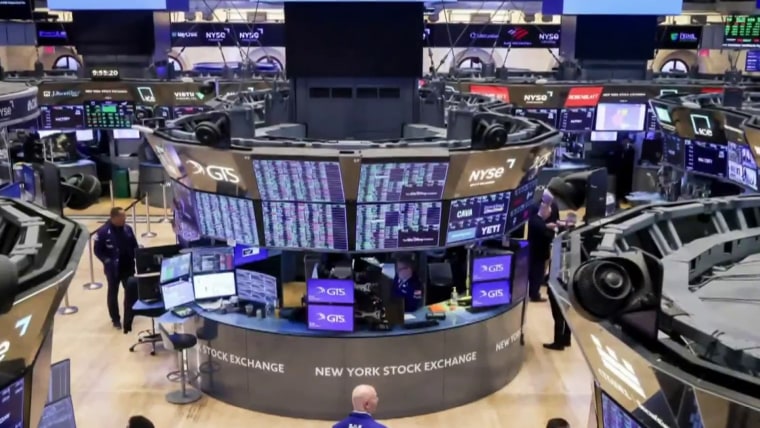HONG KONG — International markets plunged Wednesday as stocks across the Asia-Pacific region sold off on worries about the sky-high valuations of artificial intelligence and tech companies.
The Kospi stock index in South Korea plunged more than 6% at its lowest point. Japan’s Nikkei 225 average slid about 4.5%, and Hong Kong’s Hang Seng index tumbled more than 1%. Stocks in Taiwan also fell around 2.5%.
European markets also opened lower.
The pan-European STOXX 600 dropped as much as 0.7%, while Britain’s FTSE 100 was down 0.2% at its lowest, and Germany’s benchmark stock index took a hit of 0.7%. The markets clawed back some of their losses later.
U.S. stock futures, an indication of where markets will open, showed that losses were likely to continue Wednesday after the opening bell rings in New York. S&P 500 futures pointed to a drop of 0.5%, and Nasdaq futures indicated a decline of about 1% on Wednesday.
While Asian markets pared some of their losses from earlier in the day, the indices closed lower across the board, which economists said was an indicator of how reliant tech companies, even in Asia, are on the U.S.
“There are some Asian economies — Taiwan the most, followed by South Korea — that are really dependent on U.S. tech companies,” said Alicia García-Herrero, chief economist for Asia-Pacific at Natixis in Hong Kong.
“It’s about the export of chips and more generally the ecosystem,” she said. “It’s very correlated.”
The selloff came after a day of significant selling in the United States that brought the recent global market rally to a halt. The S&P 500 closed Tuesday down 1.1%, the Nasdaq tumbled 2%, and the Russell 2000 fell 1.8%.
The largest publicly traded company in the world, Nvidia, dropped nearly 4% on Tuesday. Palantir, another AI firm whose business involves government contracts, sank nearly 8% even after it beat Wall Street’s earnings expectations.
“If you look at the graph for the whole index and how much that index has been contributed by AI stocks, you just can’t believe that’s sustainable,” García-Herrero said.
Last week, the Kospi hit a record high, fueled by gains in AI stocks. Taiwan’s benchmark index, TWI, has gained 20% this year, driven in part by the 40% gain seen by TSMC, which supplies chips to Nvidia and other tech companies.
But on Wednesday, the months-long rally came to a grinding halt after overvaluation warnings from Wall Street, resulting in a steep selloff,with shares of global electronics giant Samsung falling 5.5% and chipmaker SK Hynix dropping more than 6%.
SoftBank, a major investor in AI firms, sank more than 14%, wiping out more than $30 billion in market value.

Late Monday, the CEOs of Goldman Sachs and Morgan Stanley warned that a possible market pullback may be on the horizon. Matters were made worse by lackluster earnings Tuesday afternoon from Advanced Micro Devices and Super Micro Computer, both of which manufacture chips used for AI services.
Enthusiasm about artificial intelligence and the companies that produce AI services has been overflowing for months. Companies from Amazon to Microsoft to OpenAI have announced a steady stream of multibillion-dollar deals with one another, raising questions over the sustainability of the industry and its sources of funding.
U.S. stocks are coming off a remarkable run, repeatedly setting recent record highs. For the year so far, the S&P 500 is still up more than 15%. The Nasdaq Composite, which more closely tracks the largest tech companies, has still gained more than 20% this year.
Mithil Aggarwal reported from Hong Kong, and Steve Kopack reported from New York.
